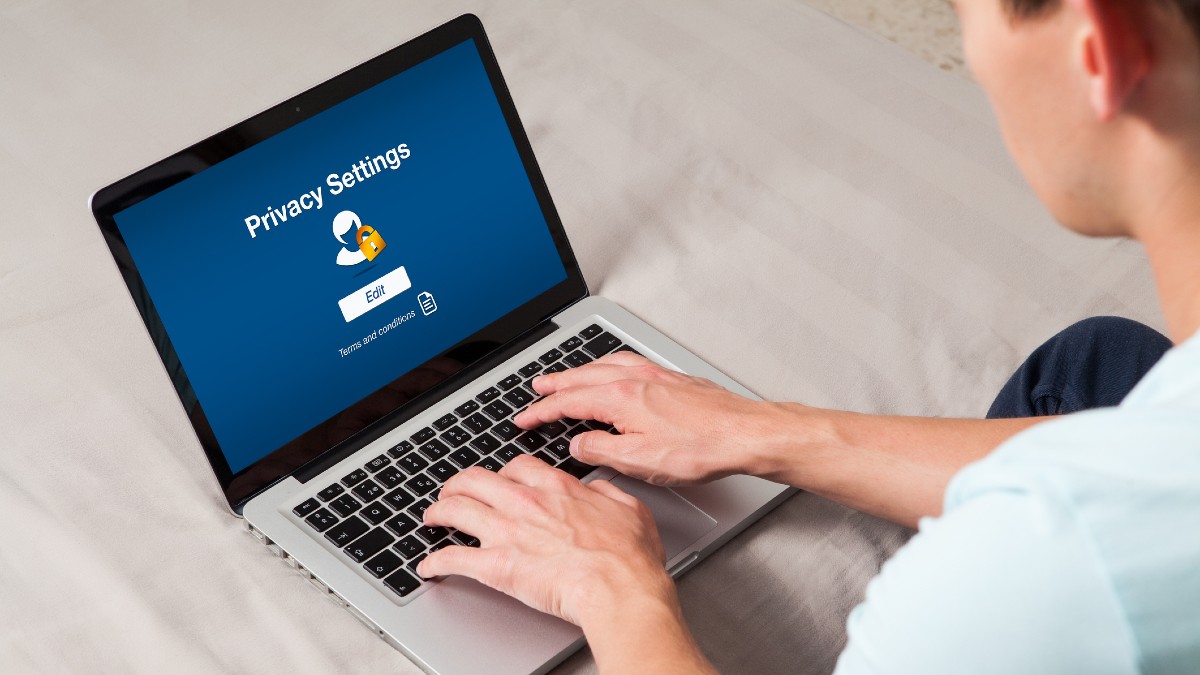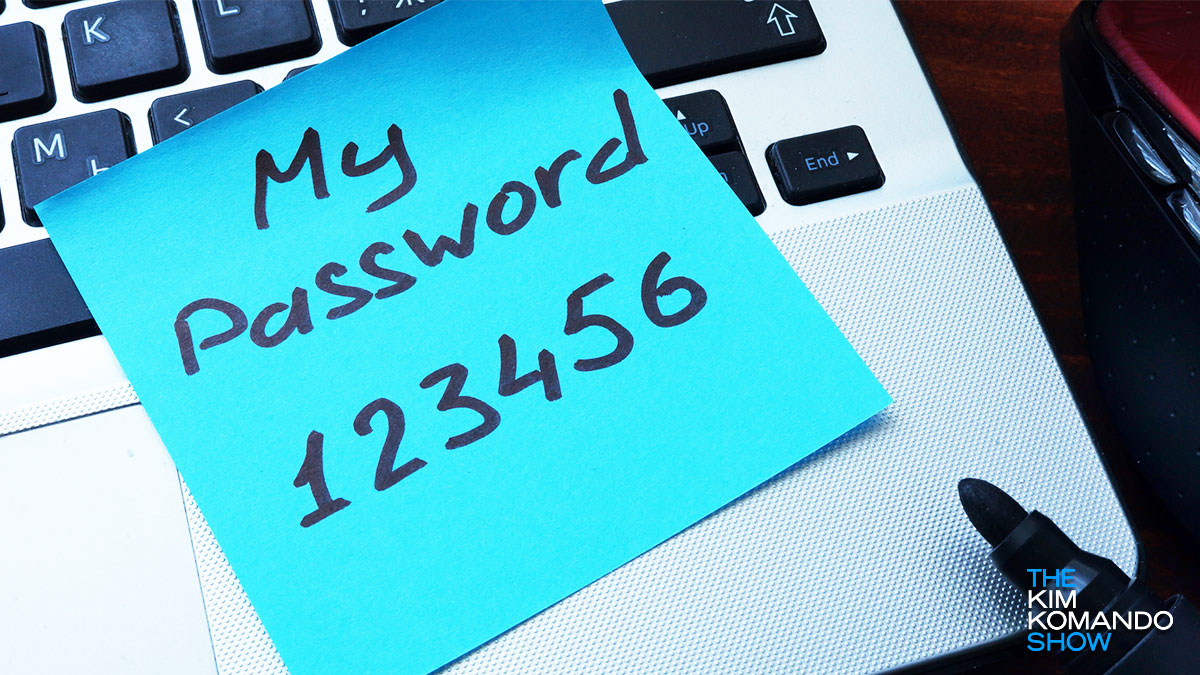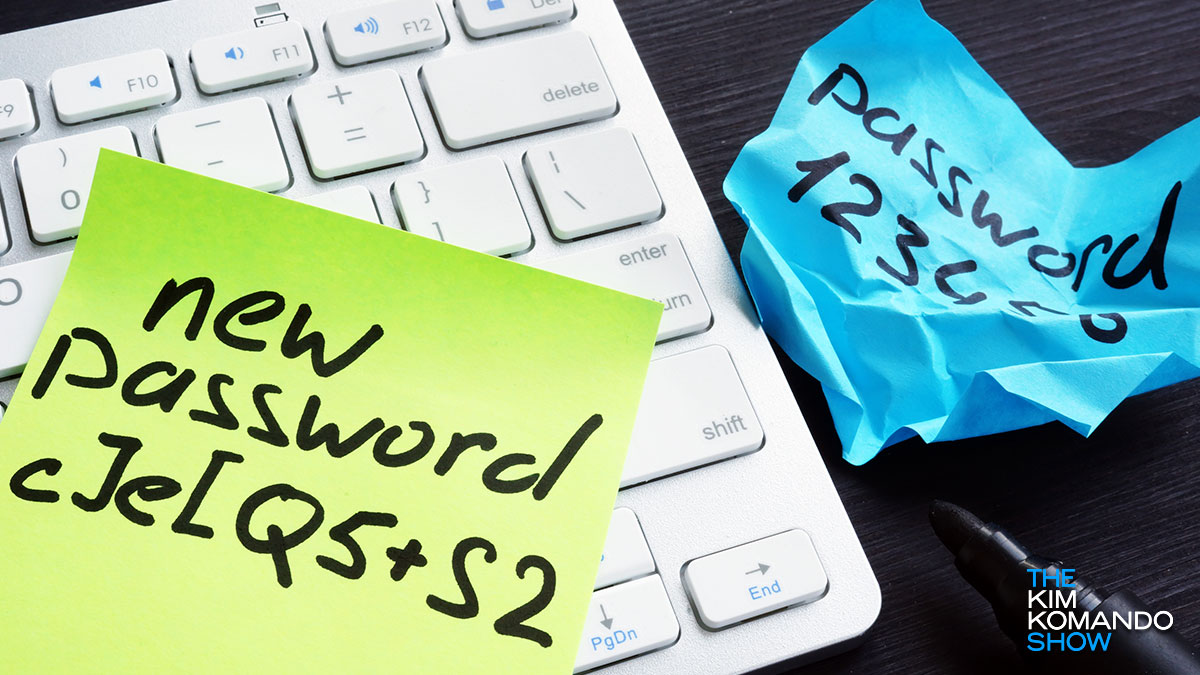Let’s face it, hackers and criminals are out to get you. These days, they even have ways of infecting your iPhone and iPad. Have your devices been hit by an attack? Here are some surefire signs that you’re a victim. Plus, I’ll give you tips to get rid of viruses and bugs from your iPhone and iPad.
The essential privacy tool to protect you from Big Tech

My inbox is filled with people asking how they can stay out of Big Tech’s reach.
It starts with the services you use. Yes, they’re mostly free, but remember what you’re paying with: Your data. Tap or click here for services you can use that aren’t under Big Tech’s control.
You’ll also need to take a crack at wiping away what those companies already know. Tap or click here for the steps to erase what Google has collected on you over the years.
For years I’ve encouraged my listeners and readers to use a VPN. With just a click, you can keep online snoops, including Big Tech and your ISP, out of your digital life. Let’s dive into how it works.
What is a VPN and what does it do?
Let’s start with the basics. A VPN, or virtual private network, is a layer of protection between your devices and the internet. It hides your IP address and your location. It also encrypts your data after it leaves your device and travels to whatever website you’re visiting.
There are many free VPNs available, but I highly recommend you skip those. Again, when something is free, there’s often a hidden cost.
Free VPN apps have been caught hiding malware, improperly securing info and packaging up and selling your data. That defeats the purpose of using a VPN in the first place. Plus, free options generally aren’t as reliable or speedy as paid options.
There’s nothing wrong with trying to save money, but online security is one place you can’t skimp.
What makes a good VPN?
Just because you’re paying for a VPN doesn’t mean you’ll automatically get adequate protection. Even the big names have had their fair share of hacks, breaches and questionable privacy practices. Here are a few of note:
- Avast-owned HMA VPN (Hide My Ass) logged user data until rolling out a new policy in 2020.
- NordVPN was hacked in 2019 when a cybercriminal broke into one of its Finnish servers and leaked security certificates.
- A handful of VPNs, including UFO VPN and Rabbit VPN, leaked 1.2TB of user data last summer.
- Hackers exploited Pulse Secure VPN in 2020, more than a year after it released a patch to fix a vulnerability.
These are the 20 worst passwords you can use

It’s a tough balancing act to create a password that’s both strong and easy to remember. If you make your passwords too simple, you can actually put your accounts in danger of cyberattacks.
The strongest passwords always use a complex arrangement of numbers, letters and symbols that make them tricky to guess. If you don’t repeat characters, it can also be difficult for hackers to brute force them. Tap or click here to see our guide to stronger passwords.
Viruses on your iPhone or iPad? Here's how to remove them
Avoid this email mistake - it helps hackers
Most people save many emails from a variety of people. We even take the time to keep it all organized and use folders. Here’s why hackers love that — and what you should do instead.
Your passwords are exposed - here's what to do about it

Pop quiz: How many passwords do you use online? It’s probably more than you can remember right away, and most of the world is right there with you. According to a report from cybersecurity firm Digital Shadows, the average person uses 191 services that require passwords — and more than 15 billion stolen credentials are in circulation. That’s a 300% increase since 2018!
Work from home basics: 4 tips to help you get started

The dramatic rise in COVID-19 cases has prompted many businesses to transition to remote work. In 2018, a quarter of Americans worked from home at least some of the time. Now, at-home workers may be the norm for the foreseeable future.
5 router admin settings you need to change to keep hackers out
Router security isn’t the most exciting thing in the world, but when it comes to the safety of all the devices in your home, it’s incredibly important. Kim shows you how to protect yourself and your family with just a few simple tweaks of your router’s settings, directly from the admin page. Don’t worry, these are simple changes anyone can make.
Hackers hate this new Chrome feature
When it comes to internet browsers, you’re spoiled for choice. But which one is the best? And what’s the new Chrome feature that’s stumping hackers? You’ll find out in today’s episode!
Tracking down Dark Web criminals
Go past the websites you visit every day, into the depths of the Dark Web. You’ll find marketplaces selling ransomware, kits to start your own phishing campaign and even hackers for hire. In this episode, Kim is joined by top cybersecurity pro John Hammond of Huntress. Find out how he tracks down Dark Web criminals and the real-life consequences.
Russian hackers hacked our hacking methods
A devastating cyber attack shook the U.S. government to its core. It’s likely that the attackers came from the Russian government. Here’s what you’ve got to do now.
Use these passwords if you want to get hacked
Passwords are a pain, but they’re worth the struggle. Finding a strong password can be tough, but I’ve got you covered. Here’s what NOT to do!
Keep your keys in the fridge to prevent hackers
Remote keyless entry systems for cars arrived in 1983 with the phrase “key fob”. Today, key fobs lock and unlock, start the engine and even call for help. But they also come with a risk.
Election hackers: How secure is the tech we’re using for the next election? Part 2
It’s part 2 of our election episode, and we’re diving even deeper into the 2020 Election’s biggest security threats. We’re talking about ransomware, delays, government hacks and more. Planning to vote this year? You’ve got to listen to this!
Election hackers: How secure is the tech we’re using for the next election? Part 1
It’s almost time for Americans to vote, and most of us have the same question: Is the tech taking and counting our votes secure? In part one of our Election 2020 deep dive, Kim lays out all the different security threats you have to deal with when you vote. Whether you cast your votes by ballot, voting booth or through a website, you could encounter wannabe election engineers. Luckily, you’ve got Kim Komando on your side. Get all the knowledge you need on how to vote safely.
Spotting online scams & free tools to fight ransomware
This episode is a special hour of Kim’s Tech Insights Show airing on SiriusXM Business Radio. Meet cybercrime hero Michael Gillespie, who fights against ransomware with free tools for victims. Plus, security officer Etay Moar has tips on avoiding pandemic scams, and Steve Ginty, Director of Threat Intelligence for Risk IQ, has the shocking figures behind just how bad things are online right now. You won’t believe just how often hackers are trying to break into your tech or attack your business.
Everything you need to know about ransomware in 30 minutes
By now, you’ve heard of ransomware attacks that take over computers of people like you but also businesses, hospitals and government agencies. These attacks are up 41% over the last year and it begs the question, why is this tactic so popular? Simply put, it nets hackers big money. In this Komando On Demand, Kim talks to a knight in shining software armor who has made it his mission to thwart ransomware attacks. Plus, cybersecurity tips from Etay Maor, Chief Security Officer at IntSights.
The most brazen COVID-19 blackmail scam yet
I know, I know — another coronavirus scam. But this one is the most brazen yet. You won’t believe what hackers are banking on scared people falling for. The worst part? It’s working.
Video doorbell company is making a major privacy change you should know about

Living in a digital world makes it ridiculously difficult to protect our privacy. Cybercriminals do their best to trick unsuspecting victims into handing over sensitive information all the time, not to mention hackers who just steal it.
Tax time: Do it now but make sure your computer is protected from hackers
Tax aren’t due for a couple months, but you shouldn’t wait. Identity thieves are already on the move. When you’re ready to file, I’ve got two essential steps to make sure you do so safely.
Macs now more attacked than Windows PCs
If you’re a Mac user, you probably believe you’re less at risk online than Windows users. Hate to break it to you, but that “common knowledge” just isn’t true anymore. If you have a Mac, don’t miss this — you may be more exposed to hackers and cybercriminals than you realize.